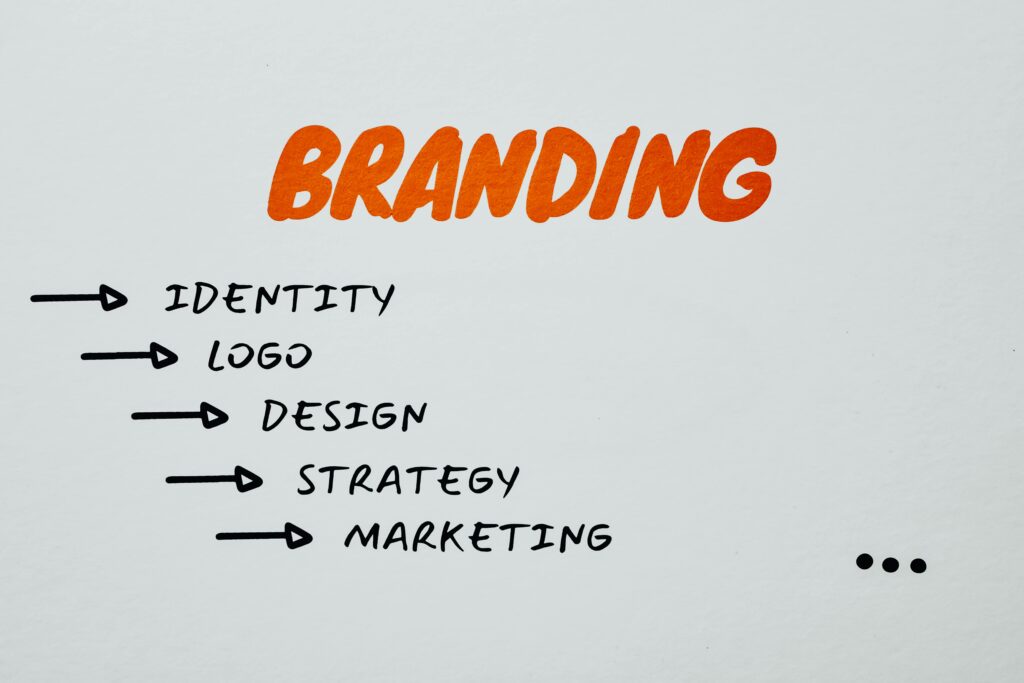Personal Branding has become even more important with the emergence of online technologies. The term, often associated with influencers showcasing their lifestyles on social media, has much deeper implications. But why is personal branding so vital, and how can you effectively build and maintain your own?
Contents
- 1 The Importance of Personal Branding
- 2 Defining Your Personal Brand
- 3 Integrating Your Brand into Your Work
- 4 The Benefits of a Strong Personal Brand
- 5 Overcoming Challenges
- 6 Conclusion
- 6.1 FAQs
- 6.1.1 What is personal branding and why is it important?
- 6.1.2 How can I identify my uniqueness for personal branding?
- 6.1.3 What steps should I take to define my personal brand?
- 6.1.4 How can I integrate my personal brand into my work?
- 6.1.5 What are some effective ways to use social media for personal branding?
- 6.1.6 What are the benefits of a strong personal brand?
- 6.1.7 How can I overcome challenges in building my personal brand?
- 6.1.8 How often should I update my personal brand?
- 6.1.9 Can personal branding help me during career transitions?
- 6.1.10 How do I measure the success of my personal branding efforts?
- 6.1 FAQs
The Importance of Personal Branding
Personal branding is about intentionally defining and expressing your unique value proposition. It’s the blend of your skills, experiences, and values that differentiate you from others. A strong personal brand not only enhances visibility and expands networks but also highlights your unique strengths, making you a go-to person in your field.
In the tech industry, I often interact with entrepreneurs, bloggers, and business professionals who are adept at branding companies. They excel in social media strategies, search engine optimization, and advertising, which are crucial for business growth. However, they may sometimes overlook the importance of personal development. By thinking of oneself as a brand, individuals can apply the same principles used in corporate branding—identifying strengths, weaknesses, opportunities, and threats—to achieve personal success. This approach not only enhances self-awareness but also equips individuals with the tools to market themselves effectively in the professional world.
Defining Your Personal Brand
Through understanding your unique identity, you can develop a strong personal brand in these three steps.
1. Identify Your Uniqueness
Consider the various aspects of your identity—your background, culture, race, gender, experiences, and beliefs. How do these elements shape your worldview and contributions to your field? Your unique perspective is your superpower. In business, we would call this a unique selling point.
2. Clarify Your Values
What causes or issues resonate with you? Whether it’s climate change, social justice, or innovation, your values should align with your professional pursuits. The 2024 Hopes and Fears Survey may shed more light on your personal values. Understanding what drives you can guide your career choices and help you connect with like-minded individuals and organisations. This may lead to opportunities which appeal to you into the future.
3. Highlight Your Contributions
What are your specific skills that may be valuable to your industry? Your professional experiences, educational background, and personal interests combine to form your expertise. Whether you’re skilled in data analytics, marketing, or user experience design, pinpoint how your expertise adds value to your industry.

Integrating Your Brand into Your Work
Once you’ve defined your brand, the next step is to integrate it into your daily work. Here are some strategies:
1. Align with Organisational Goals
Look for projects and initiatives within your organisation that align with your brand. For example, if you are passionate about sustainability, get involved in your company’s environmental initiatives. This not only helps you work on something meaningful but also increases your visibility within the organisation.
In my experience, I once worked at a large telecommunications company and discovered a project focused on defining the organisation’s purpose. By participating in this initiative, I not only aligned with my brand of building digital societies but also connected with new colleagues and learned new skills.
2. Connect with Like-Minded Colleagues
Networking with colleagues can lead to peer-support, eye opening feedback, and in turn help refine your ideas. Many companies have employee resource groups (ERGs) focused on various social issues, which can be a great place to start. Engaging with these groups can provide opportunities to collaborate on projects and initiatives that align with your personal brand.
If your company doesn’t have formal groups, don’t hesitate to start your own discussions or share articles and content related to your interests. This proactive approach can help you find like-minded individuals and build a supportive community.
Crafting a regular routine to develop and share content that aligns with your brand is very important. This could include writing articles, sharing insights on social media, or even creating videos. The key is to share thoughtful, well-researched, and ethical content that showcases your expertise and values.
Start by curating content from reputable sources and adding your perspective. Over time, you can develop original content that addresses industry trends, offers solutions to common problems, or shares personal stories that illustrate your brand’s values.
Remember, content creation doesn’t have to be time-consuming. Dedicating even an hour a week to this can significantly impact your personal brand. Moreover, as your brand grows, so will your opportunities to speak at events, participate in panels, or contribute to industry publications.
4. Use Social Media to Maximise your Impact
The number one platform for personal branding is LinkedIn, as it works specifically in the professional sphere. However, X (Twitter), Facebook and Instagram are also great ways to showcase your unique brand. Business.com confirm these claims platforms, with a quick guide to creating accounts if you have not done so.

The Benefits of a Strong Personal Brand
A well-established personal brand offers numerous benefits:
1. Increased Visibility
Being known for specific expertise or values makes it easier for colleagues, industry peers, and potential employers to recognize your contributions.
2. Career Opportunities
A well crafted personal brand can lead to opportunities which maximise your strengths and adds value to your development. It may be business opportunities or contracts, new employment positions, or even guest speaking events!
3. Professional Resilience
In times of change, a strong brand provides a stable foundation. Remembering your strengths, and advertising yourself as a product can help lead to new roles and opportunities very quickly.
Overcoming Challenges
Building a personal brand can seem daunting, especially if you’re early in your career or feel overwhelmed with daily responsibilities. However, it’s important to remember that personal branding is a long-term investment. It requires consistent effort, reflection, and adaptation.
For young professionals, focus on building a foundation. Identify your interests, start developing relevant skills, and seek out mentors who can guide you. Even if you’re not yet an “expert,” your unique perspective and passion can be valuable.
For those concerned about time, integrate brand-building activities into your routine. For example, if you’re passionate about a particular cause, find ways to incorporate it into your work projects. Use social media to share insights or join professional groups that align with your interests.
The Harvard Business Review, however, also notes the importance of adaptability. As with any brand, managing, evaluating and adapting is super important to ensure you are ready for those upcoming opportunities!
Conclusion
Personal branding is more than just a buzzword; it’s a powerful tool for career development and personal growth. By defining your uniqueness, values, and contributions, and actively integrating them into your professional life, you can build a brand that reflects your true self. This not only enhances your visibility and opportunities but also provides a sense of purpose and direction.
Remember, your personal brand is an evolving asset. As you grow and gain new experiences, your brand will naturally evolve. Stay authentic, continue learning, and keep sharing your journey with the world. In doing so, you’ll not only achieve your professional goals but also inspire others along the way.
See Also: Grocery Receipt Generators | Top 10 Tools
FAQs
What is personal branding and why is it important?
Personal branding involves intentionally defining and expressing your unique value proposition. It blends your skills, experiences, and values to differentiate you from others. A strong personal brand enhances your visibility, expands your network, and highlights your unique strengths, making you a sought-after individual in your field.
How can I identify my uniqueness for personal branding?
To identify your uniqueness, reflect on your background, culture, experiences, and beliefs. Consider how these elements shape your worldview and contributions. This unique perspective acts as your unique selling point and should be the cornerstone of your personal brand.
What steps should I take to define my personal brand?
1. Identify Your Uniqueness: Understand how your background and experiences shape your contributions. 2. Clarify Your Values: Determine what causes or issues resonate with you and align these with your professional pursuits. 3. Highlight Your Contributions: Pinpoint your specific skills and expertise that add value to your industry.
How can I integrate my personal brand into my work?
Align your personal brand with organizational goals by participating in relevant projects and initiatives. Network with like-minded colleagues, and create and share content that reflects your brand. These strategies help you stay connected with your brand's values and enhance your professional presence.
LinkedIn is the top platform for professional branding. However, X (Twitter), Facebook, and Instagram can also showcase your unique brand. Regularly update your profiles with content that highlights your expertise, values, and professional achievements.
What are the benefits of a strong personal brand?
A well-established personal brand increases your visibility, opens up career opportunities, and provides professional resilience. It helps you stand out in your field, attract new opportunities, and navigate career changes with stability.
How can I overcome challenges in building my personal brand?
Building a personal brand requires consistent effort and reflection. For those early in their careers, focus on building a foundation by developing relevant skills and seeking mentorship. For busy professionals, integrate branding activities into your routine and adapt your strategies as needed.
How often should I update my personal brand?
Personal branding is an evolving process. Regularly review and adapt your brand to reflect new experiences, skills, and insights. Stay authentic and continue sharing your journey to ensure your brand remains relevant and effective.
Can personal branding help me during career transitions?
Yes, a strong personal brand provides a stable foundation during career transitions. By clearly communicating your strengths and values, you can more easily find new opportunities and navigate changes in your professional life.
How do I measure the success of my personal branding efforts?
Success can be measured through increased visibility, engagement on social media, and the number of career opportunities or professional connections you gain. Reflect on how well your brand aligns with your career goals and adapt as needed.

As the owner of techieplus.net, I am dedicated to providing insightful and reliable content in the ever-evolving world of technology. My passion for tech drives me to explore the latest trends, innovations, and gadgets, while my commitment to integrity ensures that my readers receive honest, accurate, and unbiased information. At TechiePlus, I strive to create a space where technology enthusiasts can stay informed, inspired, and connected.
